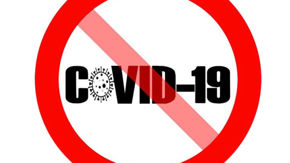When the world is struck with a catastrophic event, the instinct to shield our children from the effects of it is completely understandable. We want them to grow up believing that the world is good and geared in their favour. We also want them to feel safe, and avoiding a discussion isn’t necessarily the way to make this happen. Older kids will know when something big has happened, whether you’re the one who tells them or not. Knowing something has happened, but not having anybody to explain things, is really scary. We all need context and assurance and it’s the facts that provide this.
All kids are different. They need different information to feel safe, they look for a different level of detail and they are impacted by different parts of the story. Nobody knows your kids better than you do, so it’s important to manage the conversation based on who they are, what they already know and what it means for them.
The most important question
Whatever their age, there is likely to be one thought at the front of their minds – “What about me?” This is normal and healthy and part of the way they will process what has happened. They need to understand the situation or news in terms of what it means to them and their own safety and well-being. Let this guide your response.
Let them know that what they’re feeling makes sense
Whether they feel nothing at all or very deeply, let your kids know that whatever they’re feeling is completely okay. The only way through a feeling is straight through the middle, and this will only happen when there is gentle acceptance of whatever that feeling is. If they see that you can accept what they’re feeling, it will be easier for them to do the same.
All kids are different. They need different information to feel safe, they look for a different level of detail and they are impacted by different parts of the story.
Name what you see or hear from them
Saying things like, “Oh, don’t worry,” or, “Don’t be silly – nothing like that will happen here,” though said with the best of intentions, can actually make kids worry more. It might also cause them to feel shame, which will only make them shut down. They’ll still feel what they’re feeling and think what they’re thinking, but you just won’t find out about it. Let them know that you get their feelings by reflecting back to them – “I can see you’re feeling scared. That’s completely understandable. It’s a frightening thing to happen.”
Help them to put it in context
If they’re feeling scared, it will be because they’re noticing the similarities between themselves and the people who have been directly hurt – ages, families or the area they live in. Explaining the differences between their circumstances and the circumstances around the event will help to ease their fear. If you’re living far away from the traumatic event, try saying something like, “This has happened in a different place to where we live. Nothing like this has ever happened here.” Or if you’re living where the trauma has happened, you could say, “When something like this happens, people work really hard to make sure that it will never happen again. The people who do this are really great at what they do. They learn a lot about how it happened, and the type of people who did it, and they use that information to keep everyone safe.”
Ask directly what it is they’re worried about
Trauma triggers all sorts of things in all of us. Sometimes our kids' questions will directly relate to the event - "How will they care for the people who've been hurt? Have they caught the bad guys? How did it happen? Could it happen here?"
Sometimes, it might be more indirect and unexpected. They might become scared of you dying or getting sick. They might worry about not being able to reach you when they need to, or of something happening while they are asleep or separated from you. Let them know that when something big happens, we can feel all kinds of things that don’t make sense, but there are no silly feelings or silly things to think. Ask them what they’re thinking and give them permission to say anything they want to.
Be available
Let your kids know that they can come to you with questions, feelings, ideas and thoughts, and that nothing is off-limits. Give them extra cuddles or an extra story. For older children, spend more time sitting on the edge of their bed at bedtime. They might raise things with you or they might not, but at least you’re there if they need to.
Let them see your compassion, empathy and resilience
It’s okay to let them know that you are sad for the people who have been hurt – this will nurture their empathy and compassion – but they also need to see your strength and capacity to cope with the news.
It’s okay not to have the answers they’re asking for
Frightening world events don’t make sense to any of us. Your children might ask questions that you don’t know the answers to, such as, “How did it happen?” or, “Why do some people do awful things?” In these cases, “I don’t know” is a perfectly reasonable answer. Sometimes it’s the only one.
Whenever there is trauma in the world, there are also remarkable demonstrations of solidarity and kindness, and love and support for strangers.
Remind them of the goodness in the world
Our kids need to have faith in the world and the people in it. Whenever there is trauma in the world, there are also remarkable demonstrations of solidarity and kindness, and love and support for strangers. Let them hear these stories. We belong to a humanity that can be good and kind. People who orchestrate traumatic events are acting against humanity, and when they strike, humanity always proves to be kinder, more generous, and stronger. Remind them.
Being proactive in having the conversation with kids can ensure that you’re the one who sets the emotional tone for what has happened – not their friends, not social media and not the 6pm news. Again, all children are different, so in addition to the suggestions mentioned above, here is a rough guide of extra things to think about, according to the age of your child.
An age guide
Up to four years:
Small children have trouble separating facts from fantasy, so for young ones, it might be best to shield them from traumatic events as much as you can. If they have questions, it’s important to answer them, but only in as much detail as you need to reassure them and help them feel safe.
5-11 years:
Let your kids lead the conversation here. If they’re talking, that’s important. They want you to help them feel safe. On the surface they’ll be asking what happened, but the driving force will be understanding what it means for them. How does it affect them? Could it happen to them? What if it happens to someone they love? How do you know it won’t happen again? They’ll be looking for comfort and your willingness to talk to them will give them this. Give them the details they ask for, but you don’t need to give them more than that. Don’t lie to them or avoid their direct questions. They’ll be able to tell when you’re not being upfront and this will only make it more difficult to take comfort from your answers.
12-14 years:
Because a lot of their lives happen when we aren’t there – through social media, at school, at friends’ houses – it’s difficult to know exactly how much they understand about what’s happening or what they’re worried about. Listen, and they will usually show you. The clues will be in their questions or their misunderstandings, or the incidental things they say along the way. The most important thing is letting them know that you’re there for them if they need to talk or ask questions.
At this age, they’re starting to think about things in creative, abstract ways so it can be difficult to anticipate what they’re thinking or feeling. Sometimes the way they think will surprise you. Let them know that this sort of thing is confusing for everyone and there’s absolutely nothing they can say or think that would be silly. What’s important is that you clear up any misunderstandings or misconceptions, and give them a balanced view of what has happened. “This is tragic, and I understand why you feel the way you do. The world is still a good place and you still have as much reason to feel safe now as you did before.” There is no formula for how people react in these situations. Given that the emotional centres of kids' brains are developing at a heightened rate during adolescence, it might be that they show a greater intensity of fear, anger or sadness. They might also show no emotion at all to the news. That’s completely okay and is nothing to worry about. Open the way for them to talk, but don’t push them if they don’t want to – “Did you hear about what happened? Is there anything you were wondering about or would like to talk about?”
Above 14 years:
They’ll most likely be hearing a lot of information through friends and social media, so it’s important to make sure the information they have is accurate. Ask them if they’ve heard about what happened and what they know about it.
By this age, they’ll be starting to separate from you and turning to their peers to meet their needs. Don’t worry at all if they don’t want to talk about things. When they need comfort or conversation, it’s very normal for them to turn to friends. They might also seem even more attached to their phone. People feel safest in groups, and at this age, their friendship groups are everything - it’s just how they find stability and comfort, which they might need if the world seems crazy for a while.
Don’t say things you don’t believe and don’t give them empty platitudes. They’re too smart and it will cheapen everything else you say. Let them know that you wish you had the answers and that you wish you could say nothing like this will happen again, but you can’t say that – nobody can. Let them know that these things are rare and remind them how their situation is different.
Share how you feel, but don’t look to them for comfort. It will be comforting for them to know that you feel the things they feel, but they also need to know that you feel safe and strong. Sometimes, with this age group it is best to have these sorts of conversations when they don’t have to make eye contact with you – while you are in the car together or while you’re cooking dinner. Others might like to feel your closeness. Let them take the lead on that.
Love wins
When things happen out of our control, it can feel disempowering for all of us. Give your kids back their power by letting them know that they have a vital role to play in building a world that is safe and good to be in. Empower them by letting them know that their voice, their thoughts, and the way they are in the world all matter. They need to know that it’s because of them, and people like them, that the spirit of love, kindness and compassion will always be stronger than anything that tries to weaken it.











